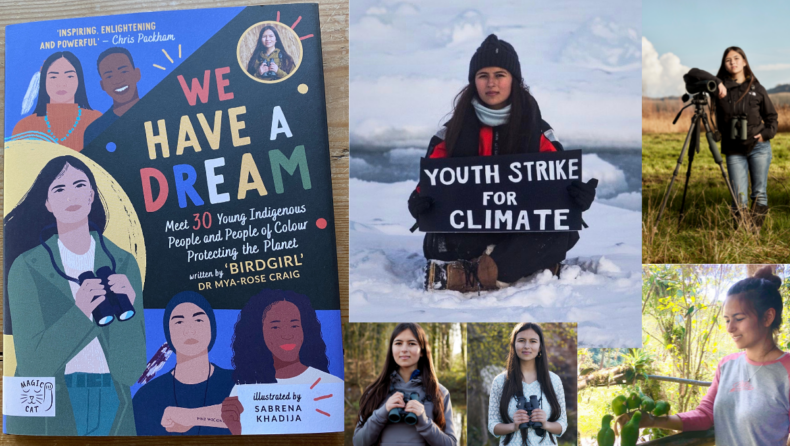Nowhere is climate change more obvious than in the Arctic. According to reports, as the planet heats up due to climate change, the Arctic warms up faster than any other spot in the world.
Earlier this year, the Paris Climate Agreement committed to limit global heating to less than 1.5C. In line with honoring the agreement, decisions were made at COP 26, which will set a course for environmental protection for the future.
Article 6 under the Paris agreement, allows for the use of global markets to help countries cut emissions, take action and fund measures that reduce emissions and damages in developing countries.
World leaders gathered in Glasgow last month for the latest international conference with a resolution to bring down climate change.
The 26th session of the Conference of the Parties (COP 26) under the UNFCCC was initially scheduled in the year 2020 and was later rescheduled to take place from 1-12 November 2021, in Glasgow, UK.
The target to eradicate global heating at this year’s COP26 is said to be the year 2050. Meanwhile, the Arctic ice recorded the second-highest melting this year, which indicates that this situation cannot wait for future net-zero emissions targets.
Following which, thousands of activists from around the globe came down to Glasgow to demand urgent action on the escalating ecological emergency before the start of the two-week Cop26 climate conference.
Days before the conference, young activists have taken to the streets to protest and voice their opinions on such a distant goal line and growing emergency.

Asiana Times spoke to one such prominent young activist and environmentalist who was in Glasgow to voice her opinion and has previously taken her climate Campaign to the very glaciers of the Arctic.
Mya-Rose Craig, also known as Birdgirl, joined the Greenpeace boat stationed in the Arctic back in 2020 to silently speak up at the world’s most northerly climate protest ever.
As a young climate activist Ms Mya took extraordinary measures to be heard by world leaders on issues related to global warming and its impact on the Arctic.
The world recognized her strike but her message she says did not yet reach those who can make a change,
“The youth strike was worth it as the story appeared in 600 media outlets worldwide. I gave interviews non-stop for a week, trying to get across the urgency of climate change and how there was no time to wait. My message was that we need urgent action now.”
As she talked about the youth protest; she did it by sitting on thin ice at the Arctic with a simple board that read ‘youth strike for climate’.
As for the outcome of the climate conference (COP 26), it has resulted in not only an official agreement but also a series of commitments to various mitigation and conservation efforts, including a deforestation pledge, a methane abatement pledge, an agreement to end overseas financing of oil and gas projects, and a steel and aluminum trade agreement.
During the course of the conference world leaders gathered in Glasgow and exchanged speeches to insist that surviving climate change needs innovation over moderation.
When asked about the conference, Ms Mya said she had no hope or trust in the conference to begin with to try and make a change and she fears it might be too late.
“I am not feeling too hopeful about the COP 26 climate change. This is because although we had a tough agreement in Paris, virtually no country has taken action needed to hit the target of 1.5 degrees Celsius warming. I think that at the moment, we are heading for a 4 degrees Celsius warming, which is catastrophic.”
As climate threats intensify worldwide, the health and future of every child worldwide is under immediate threat from ecological degradation, climate change and exploitative marketing practices. Ms Mya said the world has failed to give her generation a climate fit to live in
“It may be too late even to hit 2 degrees Celsius, but we need to try, for my future and the future of my generation. In 2050, I will be 48 years old and maybe will have children of my own. Our parents and grandparents have betrayed us and at the moment are passing us a destroyed planet.”
She said, describing her fear.
She believes that climate change is falsely spread around as a great equalizer and that the wealthy and privileged will be able to buy their way out of the impacts of climate change.
She also insists that it’s essential for young people and indigenous peoples and those of colour worldwide to have their voices heard and amplified at such conferences.
Net-zero carbon pledges reportedly have good intentions, and several countries announced “net zero” pledges, but the transition seems tricky. Talking about the expected transitioning to net zero, Ms Mya said,
“I believe that the focus should remain on governments and corporations. We need global governmental grants to go to those with the lowest incomes worldwide to cover the cost of renewable energy and a change in lifestyles needed to succeed in combating climate change. We need equity so that those who have the lowest incomes do not bear the brunt of the change needed.”
The COP 26 climate summit in Glasgow came to a close, making important progress in a number of areas but the questions still remain on if it’s not enough. The world still remains off track to beat back the climate crisis.













